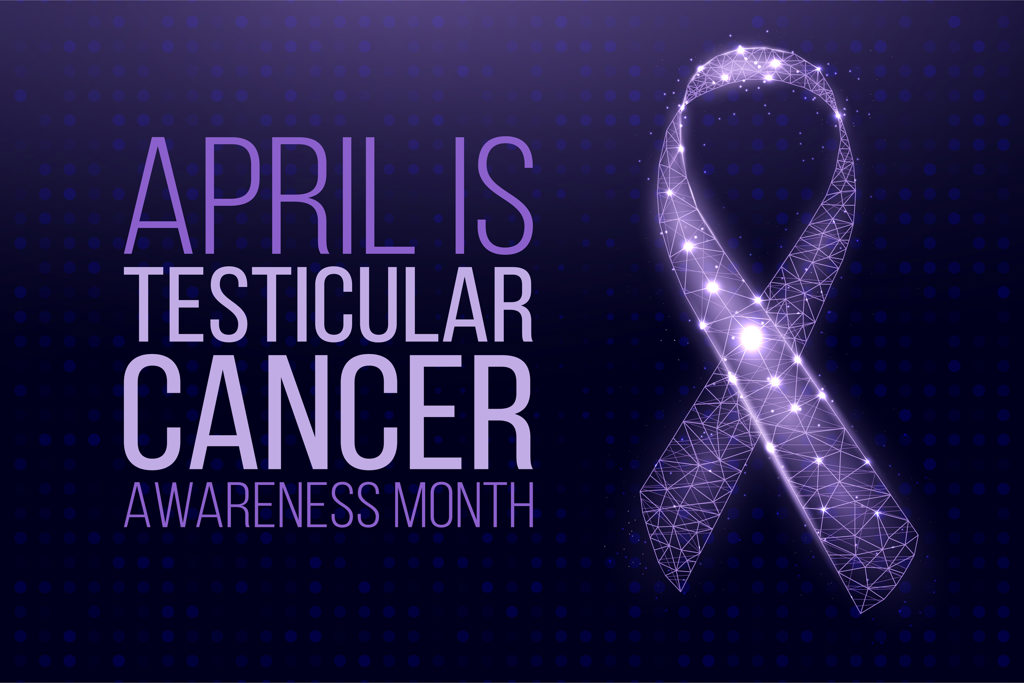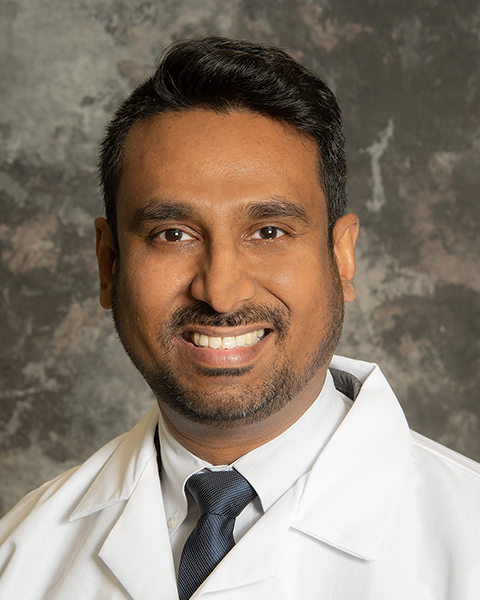
Approximately 1 out of every 250 males will develop testicular cancer at some point during their lifetime. According to the American Cancer Society, the rate of testicular cancer has been increasing for several decades. However, even though the number of cases has risen, testicular cancer continues to be highly treatable. A man’s lifetime risk of dying from testicular cancer is very low, about 1 in 5,000.
The low rate of death is a testament to the effectiveness of treatment options, which usually involve surgery and chemotherapy. Once testicular cancer is diagnosed, a multidisciplinary team of physicians that may include a urologist, oncologist or a radiation oncologist will develop the best treatment plan for the patient. The type of treatment depends on the type of testicular cancer and the stage.
“There are two primary types of testicular cancer: seminoma and nonseminoma. Seminoma cancers usually grow more slowly than nonseminoma cancers, and they often happen at an older age. Conversely, nonseminoma cancers tend to occur earlier in life and spread more quickly,” explained John S. Banerji, MD, and Indraneel Banerjee, MD, urologists with Penn Highlands Urology.
Along with the type of testicular cancer, the stage of the cancer also plays a factor in the treatment an oncologist will recommend. The stage refers to whether or not the cancer has spread beyond the testicle. In stages 0 and 1, the cancer only affects the testicle and the area around it. In stage 2, it has spread to the retroperitoneal (abdominal) lymph nodes, and if it spreads to other parts of the body such as the lung, liver or neck nodes, it enters stage 3.
Tumor markers play an important role in the staging of the testicular cancer — these are alpha feto protein, beta HCG and Lactate Dehydrogenase.
Once the urologist determines the type and stage of the cancer, treatment options will be explored. For nearly all testicular cancers, radical inguinal orchiectomy (removal of testicle through a groin incision) is first performed.
“If the cancer has not spread, surgical removal of the testicle may be the only treatment needed,” said Dr. Banerji. “A prosthetic, gel-filled testicle can be inserted, depending on the patient’s preference. These patients then would be followed up very closely with CT scans every three to four months, and blood work and clinical examination. If the cancer has spread to the lymph nodes, patients will require chemotherapy. Following chemotherapy, CT scans would be done to see the response to chemotherapy and if the lymph nodes had decreased in size. For seminomas, if this is less than 3 cm they will be monitored. For nonseminomas, any size node greater than 1 cm would require surgery to remove the nodes.”
Radiation therapy may also be used to treat cancer that has spread to the lymph nodes. This type of therapy is typically used for seminoma cancers, as seminomas are extremely sensitive to radiation.
If the cancer has spread to other parts of the body, chemotherapy is often instituted.
Chemotherapy uses drugs that travel throughout the body to kill cancer cells that may have broken away from the main tumor and spread to lymph nodes or other parts of the body. It can be administered either by injection or pills. Chemotherapy to treat testicular cancer is usually given by injection into a vein. Chemotherapy may also be used after the testicle is removed to decrease the risk of the cancer returning.
While testicular cancer is often successfully treated, researchers still do not have a clear understanding of what causes it. Risk factors include having an undescended testicle, infertility with a small testicle, having a family history of testicular cancer and being between the ages of 15 and 45. It is more common among Caucasians.
There is no way to prevent testicular cancer, but your doctor may recommend regular testicular self-exams, particularly if you are at a higher risk. Talk to your urologist about the best options for you.
Penn Highlands Healthcare board-certified urologists deliver comprehensive urology care. They are highly trained to treat disorders of the male reproductive organs, and the urinary tract for both males and females. Penn Highlands urologists offer a wide range of state-of-the-art treatment options, both surgical and non-surgical, in a comfortable, compassionate environment. Learn more at www.phhealthcare.org/urology.

